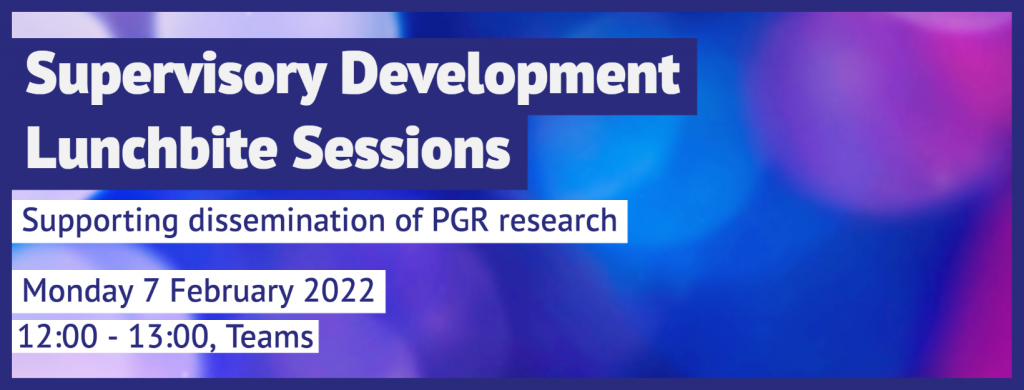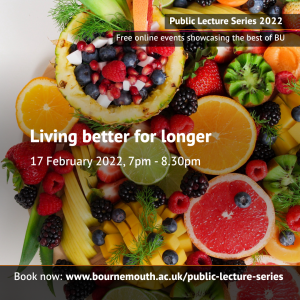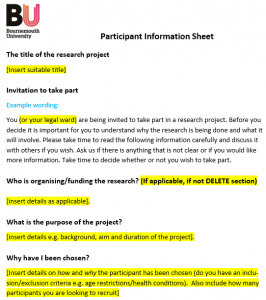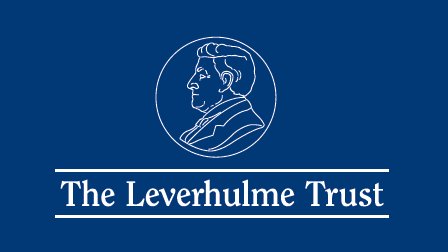by Professor Richard Berger. Deputy Chair and member of the Social Sciences & Humanities Research Ethics Panel
 This blog-post is about why thinking about ethics right at the start of your project – rather than at the end as almost an after-though (and yes, we have all done that) – is crucial to having a successful outcome. First of all, it is good research practice, and an important aspect of your identity as an active researcher. If that doesn’t persuade you, then the requirement from most funding bodies (all the good ones, anyway) is that all projects must be overseen by a robust ethics process. The ESRC’s Research Ethics Framework regards ethics procedures as an indicator of the project’s quality. So, thinking through the ethical implications of what you want to do, right at the very beginning of your research, should ensure that there are no hiccups along-the-way. For Gary Thomas, “[ethics] is about the conduct of your work: it is about how you think about inquiry, how you think about this research project; it is about your respect for others” (2013, p.38).
This blog-post is about why thinking about ethics right at the start of your project – rather than at the end as almost an after-though (and yes, we have all done that) – is crucial to having a successful outcome. First of all, it is good research practice, and an important aspect of your identity as an active researcher. If that doesn’t persuade you, then the requirement from most funding bodies (all the good ones, anyway) is that all projects must be overseen by a robust ethics process. The ESRC’s Research Ethics Framework regards ethics procedures as an indicator of the project’s quality. So, thinking through the ethical implications of what you want to do, right at the very beginning of your research, should ensure that there are no hiccups along-the-way. For Gary Thomas, “[ethics] is about the conduct of your work: it is about how you think about inquiry, how you think about this research project; it is about your respect for others” (2013, p.38).
BU has not just a responsibility towards you, but to your participants, and so it is vital that you plan well-ahead for their welfare and well-being. All research should be ethical, for as Martyn Denscombe writes: “[Research] should strive to produce something for the public good, and should never be frivolous, selfish or malicious in its aims” (2021, p.221). Alan Bryman’s book on social research methods – see References below – demonstrates very effectively that research which has been designed with ethics as an after-thought often leads to dubious practices, and unreliable and unverifiable data (2008, pp.114-115). As a researcher, you have a duty of care to your participants, and so the core of your ethics planning then, should be ‘consent’, and how you are going to gain it.
If you are going to anonymise your participants, then you need to plan in advance how you are going to remove any identifying markers; you will then need to explain this in your Participant Information Sheet (PI Sheet) – which is part of your ethics preparation, along with the checklist: “During the planning phase you must clarify and resolve issues of confidentiality and anonymity” (Davies, 2007, p.45). Similarly, you are going to need to plan for how you are going to handle and store your data/findings – and communicate this to your participants in the same way. So, spending some time at the start of your activity, thinking about this, should help in shaping your approach. If you are called to an ethics panel (and we are a friendly and supportive bunch!), then they will be interested in this relationship between the researcher and the researched.
Inevitably, further ethics issues often arise during the research project, so it is also important to think of the ethics process as a ‘live’ issue, and not something that just needs to be got-out-of-the-way. To help with this, Cheryl N. Poth has a series of questions, under three headings which you should be continually thinking about (2012, pp.26-27):
Respect for persons:
- How will you ensure free and informed participation in your research?
- How will you avoid interference or coercions?
Concern for Welfare:
- How will you minimize hard and maximise the benefits of your research?
- How will you protect the privacy and confidentiality of those involved in the research?
Concern for Justice:
- How will you treat people fairly and equitably in your research?
- How will you select participants, collect data, and report findings and avoid bias?
Finally, with the academic freedom we all enjoy, comes great responsibilities. Thinking about your ethical conduct throughout, and asking yourselves these questions continuously, should ensure that your project is as successful as it can be, and will have the most value, as a ‘complete’ piece of scholarship.
References & Further Reading.
Arthur, J, Waring, M, Coe, R & Hedges L, V., 2012. Research Methods and Methodologies in Education. London: Sage.
Bryman, A., 2008. Social Research Methods. Oxford: Oxford University Press.
Cohen, L, Manion, L & Morrison, K., 2011. Research Methods in Education. London: Routledge.
Crotty, M., 1998. The Foundations of Social Research: meaning & perspective in the research process. London: Sage.
Davies, M, B., 2007. Doing a Successful Research Project: using qualitative or quantitative methods. Basingstoke. Palgrave Macmillan.
Denscombe, M., 2021.The Good Research Guide. London: McGraw Hill.
Poth, C, N., 2021. Little Quick Fix: Research Ethics. London: Sage.
Thomas, G., 2013. How To Do Your Research Project. London: Sage.
 Research Development and Support (RDS) run induction sessions for all new starters and those who want a refresher in research. We revamped these last year so that we could have more interactive conversation on the induction day. In order to do this, we created a series of videos, which were sent to attendees three weeks’ beforehand.
Research Development and Support (RDS) run induction sessions for all new starters and those who want a refresher in research. We revamped these last year so that we could have more interactive conversation on the induction day. In order to do this, we created a series of videos, which were sent to attendees three weeks’ beforehand.

 All research undertaken by BU staff and students is subject to appropriate ethical reflection, leading to a formal ethics review as appropriate.
All research undertaken by BU staff and students is subject to appropriate ethical reflection, leading to a formal ethics review as appropriate.
 The first event,
The first event, 












 Writing policy briefs
Writing policy briefs Upholding Excellence: The Concordat to Support Research Integrity
Upholding Excellence: The Concordat to Support Research Integrity Today’s Documentation Will Serve Tomorrow’s Justice
Today’s Documentation Will Serve Tomorrow’s Justice Up2U: New BU academic publication
Up2U: New BU academic publication New BU midwifery paper
New BU midwifery paper ECR Funding Open Call: Research Culture & Community Grant – Application Deadline Friday 12 December
ECR Funding Open Call: Research Culture & Community Grant – Application Deadline Friday 12 December MSCA Postdoctoral Fellowships 2025 Call
MSCA Postdoctoral Fellowships 2025 Call ERC Advanced Grant 2025 Webinar
ERC Advanced Grant 2025 Webinar Horizon Europe Work Programme 2025 Published
Horizon Europe Work Programme 2025 Published Horizon Europe 2025 Work Programme pre-Published
Horizon Europe 2025 Work Programme pre-Published Update on UKRO services
Update on UKRO services European research project exploring use of ‘virtual twins’ to better manage metabolic associated fatty liver disease
European research project exploring use of ‘virtual twins’ to better manage metabolic associated fatty liver disease